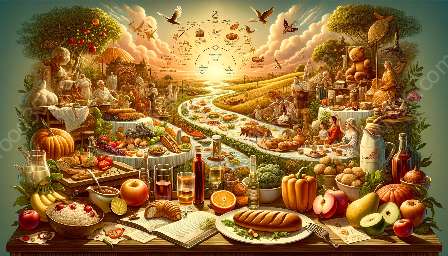Vegetarian cuisine has a rich and intriguing history in Europe, showcasing the evolution of plant-based dishes and their cultural significance. From the early roots in ancient civilizations to the modern-day trends, the journey of vegetarian cuisine in Europe has influenced the culinary landscape in profound ways.
Ancient Origins and Influences
The origins of vegetarian cuisine in Europe can be traced back to ancient civilizations such as Greece and Rome, where philosophical and religious beliefs played a significant role in dietary practices. The teachings of early philosophers, including Pythagoras, promoted the consumption of plant-based foods for health and ethical reasons. In addition, the influence of Indian and Middle Eastern cultures introduced European societies to new ingredients and cooking techniques, paving the way for the incorporation of vegetarian elements in traditional European cuisine.
Medieval and Renaissance Period
During the medieval and Renaissance periods, vegetarian cuisine in Europe continued to evolve, influenced by the culinary traditions of different regions and the availability of local produce. Monastic communities played a vital role in preserving and developing vegetarian recipes, reflecting their emphasis on simplicity and seasonal ingredients. The rise of trade and exploration also introduced a wealth of new fruits, vegetables, and spices to European kitchens, contributing to the diversification of vegetarian dishes.
Enlightenment and Changing Perspectives
The Enlightenment era brought a shift in dietary habits and philosophical outlooks, leading to a renewed interest in vegetarianism and its connections to health, ethics, and environmental sustainability. Influential figures such as Jean-Jacques Rousseau and Voltaire advocated for plant-based diets, sparking discussions about the impact of food choices on personal well-being and societal values. This period saw the emergence of vegetarian cookbooks and the establishment of societies promoting meatless meals, laying the foundation for the future evolution of vegetarian cuisine.
Modern Innovations and Cultural Diversity
The 20th century witnessed significant advancements in vegetarian cuisine, driven by changing lifestyles, health consciousness, and culinary experimentation. European chefs and food enthusiasts began to elevate plant-based ingredients, incorporating them into gourmet creations and reinterpreting traditional dishes with a vegetarian twist. Additionally, immigration and globalization brought a rich tapestry of international flavors to Europe, influencing the fusion of vegetarian recipes with diverse cultural influences.
Contemporary Trends and Culinary Impact
Today, vegetarian cuisine holds a prominent place in European culinary landscapes, reflecting a diverse range of cooking styles, ingredient combinations, and innovative presentations. The evolution of vegetarian cuisine has not only contributed to a flourishing market for plant-based products but has also inspired chefs and home cooks to explore the creative potential of meat-free meals. This culinary evolution has led to a deeper appreciation of vegetables, grains, and legumes, showcasing their versatility and the artistry of vegetarian cooking.
Cultural Significance and Heritage
The evolution of vegetarian cuisine in Europe embodies the cultural significance of food as a reflection of history, identity, and social values. Plant-based dishes have become emblematic of regional traditions, seasonal celebrations, and the preservation of culinary heritage. As the awareness of sustainable living and ethical consumption grows, vegetarian cuisine continues to shape contemporary attitudes towards food, contributing to a narrative that honors the harmony between nature, culture, and gastronomy.

